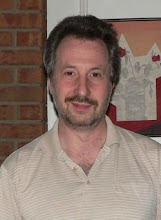provided by WebMD

Why should you start a high-protein diet?
The Goal Is Weight Loss
High-protein diets take a page from the low-carb craze. The goal is to lose weight by eating more protein-packed foods, which often means consuming fewer carbohydrates. The portion of total calories derived from protein is what defines a high-protein diet. In a typical diet 10%-15% of daily calories come from protein. In a high-protein diet, this number can be as high as 30%-50%.

How do high-protein diets work?
Curbing Appetite Plays One Role
Besides curbing appetites, high-protein diets may also change a person’s metabolism. When carbohydrates are severely restricted, the body begins burning its own fat for fuel – a state called ketosis. Ketosis may shed weight, but it’s also associated with headaches, irritability, nausea, kidney trouble, and heart palpitations.

Not all high-protein diets are the same.
Starting a High-Protein Diet
High-protein diets come in many forms, and not all are created equal. The most nutritious high-protein plans are low in fat and moderate in carbohydrates, rather than high in fat and low in carbohydrates. The following slides present a variety of foods that fit the high-protein diet bill.

Lean beef: it’s one star of a high-protein diet.
Say Hello to High-Protein Steak
Nothing says protein like a nice juicy steak. And if you’re careful to choose a lean cut, you can get all of the protein with far less fat. In fact, a lean cut of beef has barely more saturated fat than a similar size of skinless chicken breast.

Why should you start a high-protein diet?
The Goal Is Weight Loss
High-protein diets take a page from the low-carb craze. The goal is to lose weight by eating more protein-packed foods, which often means consuming fewer carbohydrates. The portion of total calories derived from protein is what defines a high-protein diet. In a typical diet 10%-15% of daily calories come from protein. In a high-protein diet, this number can be as high as 30%-50%.

How do high-protein diets work?
Curbing Appetite Plays One Role
Besides curbing appetites, high-protein diets may also change a person’s metabolism. When carbohydrates are severely restricted, the body begins burning its own fat for fuel – a state called ketosis. Ketosis may shed weight, but it’s also associated with headaches, irritability, nausea, kidney trouble, and heart palpitations.

Not all high-protein diets are the same.
Starting a High-Protein Diet
High-protein diets come in many forms, and not all are created equal. The most nutritious high-protein plans are low in fat and moderate in carbohydrates, rather than high in fat and low in carbohydrates. The following slides present a variety of foods that fit the high-protein diet bill.

Lean beef: it’s one star of a high-protein diet.
Say Hello to High-Protein Steak
Nothing says protein like a nice juicy steak. And if you’re careful to choose a lean cut, you can get all of the protein with far less fat. In fact, a lean cut of beef has barely more saturated fat than a similar size of skinless chicken breast.







No comments:
Post a Comment